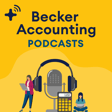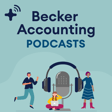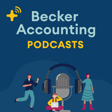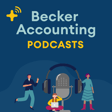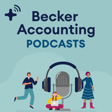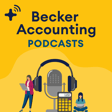
Balancing the Future Ep. 19 - A Wholistic Approach to Building Success with Kimberly Ellison Taylor & Sandra Patterson
Sandra Patterson, ALPFA National Board Member, and Kimberly Ellison Taylor, Founder & CEO of KET Solutions, join our host Christ Mitchell to discuss the key factors to personal and professional success. Sharing the importance of a supportive network in both these arenas, our guests underline pillars to their success that include community and giving back, receiving mentorship and leading others, and a personal responsibility to continuous learning that drives your career forward.
Earn CPE by listening to this podcast through a Becker Prime CPE subscription.
Listen to this episode through your Becker LMS platform to complete practice questions, pass the final exam, and earn CPE credit.
Already a Becker Prime CPE customer? Login here.
Have access to Becker CPE through your employer? Earn CPE credit for this podcast however you consume Becker CPE, either through your company’s LMS or via the Becker platform. Not sure where to log in? Check with your CPE admin.
Learn more about CPE Podcasts from Becker: https://www.becker.com/cpe/becker-podcasts
